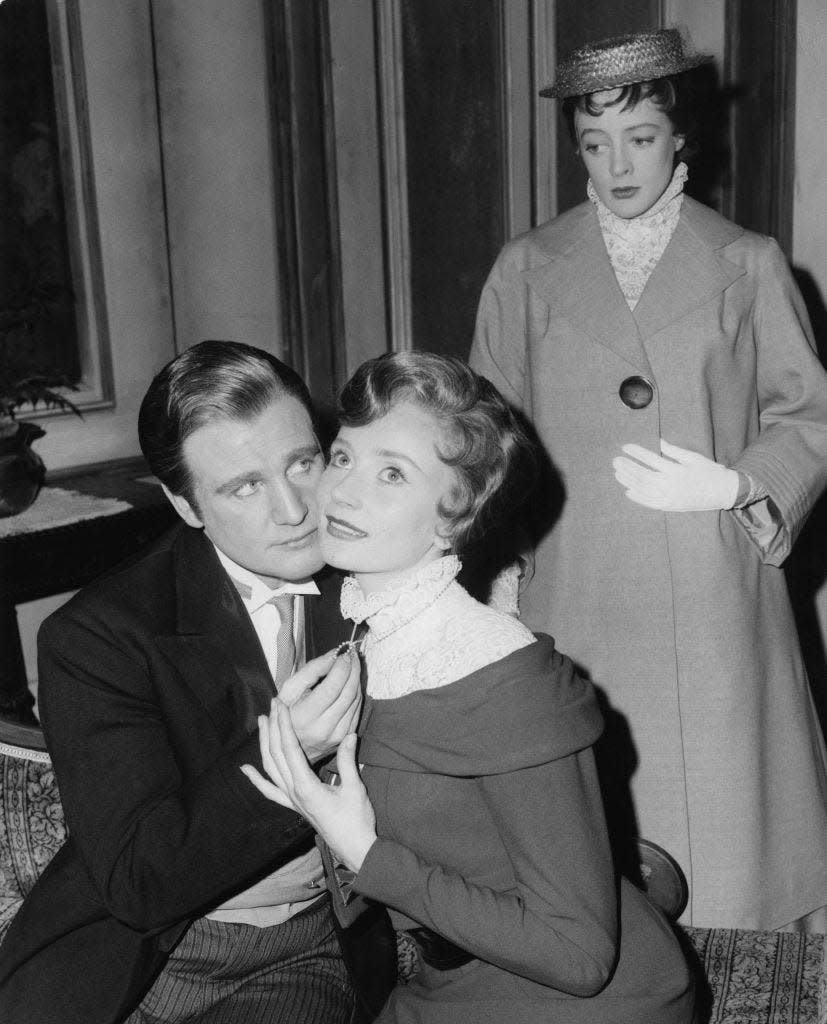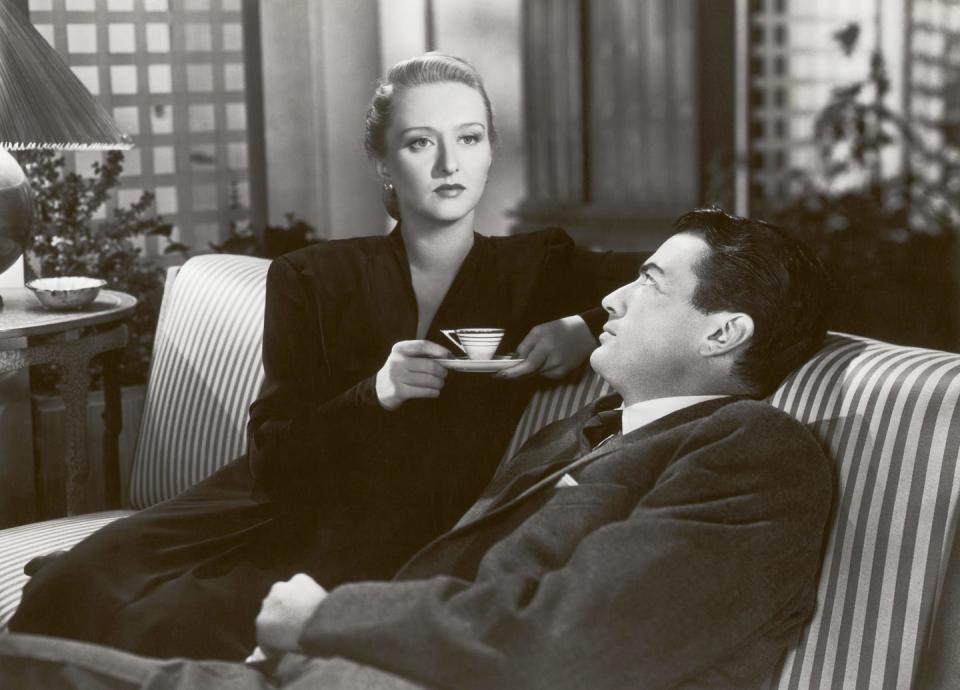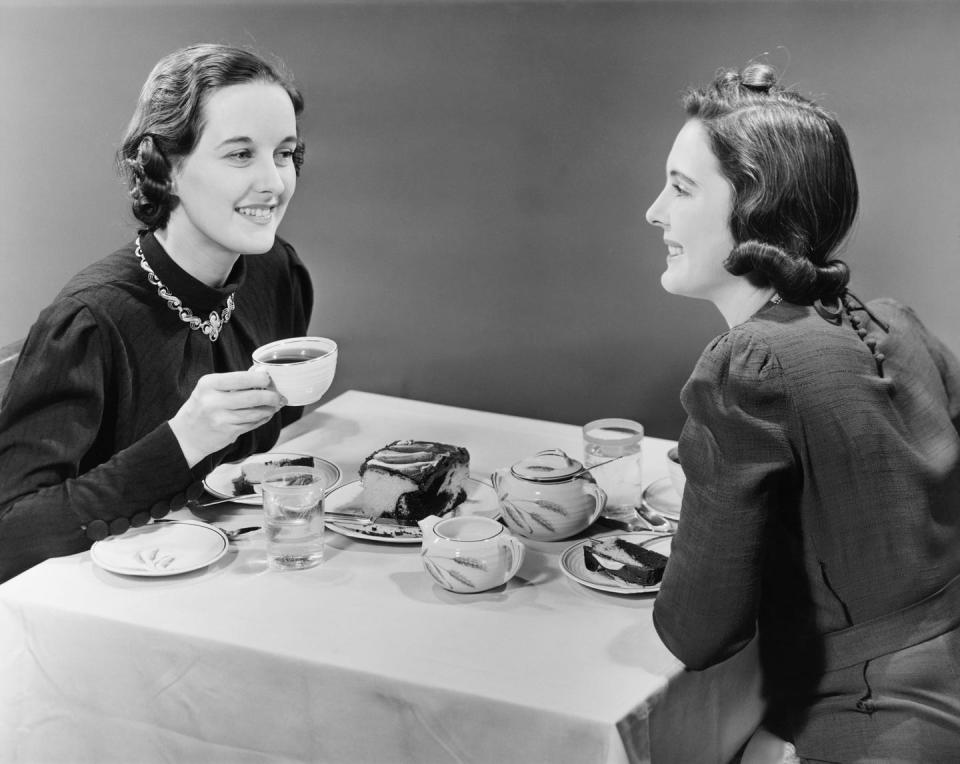How the ‘Other Woman’ Became One of My Best Friends

The sun was rising over the Nevada desert when my boyfriend informed me that for the past several months, he’d been sleeping with my best friend’s roommate.
His confession shouldn’t have come as a shock. I’d seen signs of their intimacy all week at Burning Man, from their legs casually touching as we shared a hookah to the excuses he kept making to stop by her camp. And as someone who’d expressly agreed to an open relationship with him, I was technically a willing participant in this triangle.
But that didn’t stop the animalistic rage from overtaking me that dawn. What had merely been an abstract idea of sex with other women abruptly transformed into the tangible reality of naked encounters with a person who shared toothpaste with my closest friend. A person I’d been socially acquainted with for years, whose bountiful confidence I envied, who drank her morning coffee in a kitchen where I’d spent countless hours.
So I did what any rational, begrudged girlfriend would do in response: I screamed and howled, waking up friends in nearby tents. I knocked over his bin of Burning Man costumes and sent colorful fabric flying through the dust. I sobbed until I couldn’t breathe, and when I ran out of tears, I shuffled around our camp like a zombie until my eyes were ready to produce more. Needless to say, it was clear our relationship wasn’t strong enough to survive this piece of information.

Earlier that summer, I’d left my job as an editor, rented a storage unit, and moved to Mexico City with nothing but a very large backpack and the previous year’s uncashed Christmas bonus check. I had spent most of my twenties on a journalism career escalator, and after a half-decade tethered to my laptop in service of the 24-hour online news cycle, I felt burned out and ready for a new adventure. I accepted a fellowship with a microfinance nonprofit and begged my boyfriend to join me in Latin America.
He didn’t want to leave the U.S.—but he also didn’t want to break up. Ours was one of those fiery connections that hijacked my common sense, our catalog of inside jokes annoying to everyone who didn’t inhabit our two-person universe, our dalliances and disagreements both equally explosive. When I wasn’t with him, I fantasized about our next encounter or fretted about whatever argument we’d inevitably gotten into the last time we saw each other. Like most other addictions, logic informed me that my life would be a lot healthier without him, and lust won the battle against logic every single time.
“Maybe now would be a good time to experiment with opening up our relationship?” my boyfriend suggested nonchalantly as I balled up the remaining clothing items I hadn’t put into storage and shoved them in my backpack. I hesitated at first, but by the time I left for the airport, he’d convinced me. We’d be living 2,216 miles apart, after all. Didn’t I want the freedom to build a life for myself in my new city without giving up my long-term relationship?
During my earliest weeks in Mexico, I read self-help books like Sex at Dawn and The Ethical Slut. I recited arguments in my mind about why it made perfect sense for someone you love to enjoy intimacy with others, why lifelong monogamy was an unrealistic societal expectation that bore no resemblance to our biological roots, why just because my partner connected physically with other women didn’t mean he loved me any less. I memorized the dictionary definition of “compersion” and tried desperately to absorb it into my psyche. I went on a series of hollow, meaningless dates and immediately felt guilty if I so much as kissed my suitors on the cheek at the end of the night.
But mostly, I agonized about my boyfriend’s love life. I obsessed over who he was with and who he might be meeting. I combed through his list of Facebook friends, searching for new women he had added since I’d last seen him. I lost five pounds because I was constantly sick to my stomach. Though I’d requested our open relationship follow a “don’t ask, don’t tell” arrangement, assuming I’d feel worse if I knew about other people he was seeing, the absence of information only freed up my imagination to torture me with detailed, fantastical scenarios.

Then one morning, as I scrolled through social media for the umpteenth excruciating time, I noticed that my best friend’s roommate—a woman named Ari who I’d shared pleasant exchanges with on a number of occasions—had posted a quote from my boyfriend’s favorite book, Jitterbug Perfume, on her own Facebook account. A few days later, a handful of photos of the two of them laughing together at a beach party surfaced on both their pages. I had plans to meet a colleague from my fellowship at a cafe that afternoon, but I was so distraught by the thought of my boyfriend and Ari together that I canceled and spent the day in bed.
Pretty soon Ari replaced my boyfriend as the object of my fraught fantasies. I checked her Facebook and Instagram feeds daily, poring over even the most inconsequential updates to try to uncover more clues about her life, interests, desires, and potential relationship with my partner. I clicked through her collection of photos, disarmed by her confident smile, her free spirit, her diverse group of friends. I was deeply jealous of her. I hated her. I wanted to be her.
I called my best friend on Skype. “Is Ari hooking up with my boyfriend?” I blurted out before she could say hello.
“I’m staying out of this,” my best friend replied gently, reminding me that I was the one who didn’t want to know any details about his dating life. Yet her face all but confirmed that my suspicions were correct. And when I flew from Mexico to Nevada to meet my boyfriend at Burning Man later that summer, the misalignment of our relationship preferences reached a breaking point.
A year later, my Latin American escapades had run their course. I returned to San Francisco in search of a steady job and place to live. My best friend offered me a coveted room in her house: a thirteen-person communal living situation inside a historic Victorian mansion in the vibrant Mission District. Ari, of course, lived there with her. But I’d spent the past year recovering from my mercurial relationship with my ex-boyfriend, absorbed by the resplendence of my travels. Though I still felt a sting when I thought about Ari, the opportunity to cohabitate with my best friend outweighed any residual discomfort.
My connection with Ari was tentative at first: a yoga class here, a cooking session there. During our first few encounters, I felt awkward and shrill, the gal who couldn’t hang within the confines of a modern, enlightened romantic configuration. I talked too loudly and immediately judged myself for everything that came out of my mouth, marveling at the ease with which Ari carried herself through our house, at parties, down Valencia Street.
Eventually, our forced interactions began to feel natural. We discovered we both loved tuna melts and spent an afternoon procuring the fanciest loaf of bread and tinned fish we could find, laughing as we concocted absurdly extravagant sandwiches. We realized we wore the same size clothing and regularly began raiding one another’s closets. When she found out I used to struggle with depression, she approached me for advice about another friend of hers, and felt comfortable enough to cry in my presence. Finally, after a few months of forming a genuine friendship, we teetered onto the topic of our shared ex.
It turned out, her connection with him had been the same as mine: passionate, volatile, unpredictable. When she’d found out how upset I had been upon learning about their relationship, she was devastated (he’d spent the summer insisting to her that I was “totally cool with everything”). They were no longer in touch, and she had no interest in ever seeing him again. In fact, we’d both been equally anxious to broach the subject with one another—and equally relieved to discover we had similar feelings.

Society tends to fan the flames of toxic female competitiveness, casting “the other woman” as a devious snake. She’s unilaterally at fault for seducing the man we love, who maintains his innocence. My friendship with Ari taught me just how inaccurate that story can be. In the years since we lived together in San Francisco, our relationship has only grown stronger. My best friend and I brought her into our fold, and now as a trio, we form the foundation of each others’ whole worlds.
Our text thread constantly buzzes throughout the day with triumphs, frustrations, epiphanies, photos, and hot takes on everything from Ezra Klein’s podcast to season 4 of Succession to our latest vintage store finds. We share the mundane and the miraculous with equal enthusiasm, and I feel privileged to bear witness to their lives. It’s more than friendship—it’s emotional life-partnership. And I consider our relationship to be one of the things I’m most proud of, right up there with writing a book, getting sober, mastering Spanish, and raising my dog.
A few years ago, on a trip to Rosarito, my ex-boyfriend texted me to say happy birthday. Ari was next to me when my phone pinged with his unexpected overture. In response, we made silly faces and snapped a selfie, devolving into a fit of giggles when I pressed “send.” I tossed my phone on the nightstand and went outside to join her in the hot tub before I could see his reply. By then, neither of us cared all that much about what he had to say.
You Might Also Like


